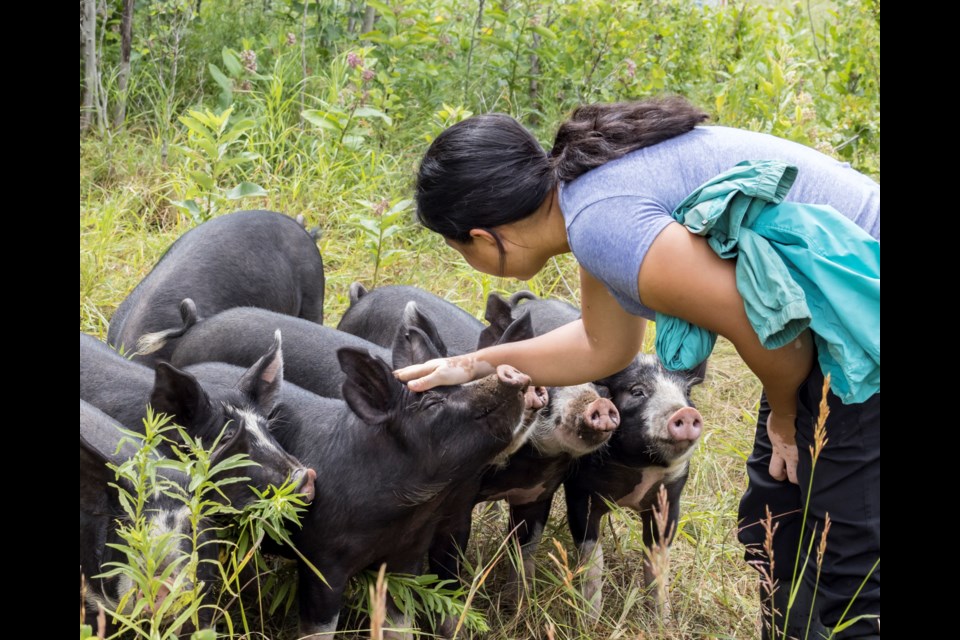A County of Wellington program is helping regenerative farming practices take root.
The Experimental Acres Farm Pilot aims to help large and small farm operations offset some risks of applying new regenerative practices into their production.
Justine Dainard, smart cities project manager, and Jordan Grigg, sustainability program coordinator, are both involved in the program. They explain the program works by candidates proposing an idea of how they can improve soil health. Using financial and educational supports from the program, participants apply the new regenerative farming practice to their operations.
"We're all trying to support that change, because we know it can be a little bit more expensive, and unknown, and we know the farmers want to get there," said Dainard.
"I think farmers are poised to be our next climate change heroes."
Funding for the joint program by the County of Wellington and the City of Guelph is made possible by Our Foood Future. Dainard said graduate students from the Arrell Food Institute helped build the program's framework.
Regenerative practices seen in the program vary between farming operations. Grigg said some participants have used practices likes planting cover crops, rotational grazing or silvopasture, the practice of letting animals graze in an established forest.
"It's ideas that have been rattling around in their brain for some time and we get to try it," said Grigg.
The program is part of a family of provincial and federal programs helping the agricultural industry move away from chemical methods of farming and lower its carbon footprint. Grigg said improving soil health can be a key component in agriculture and can help sequester large amounts of carbon.
"Ninety-five per cent of food starts in the soil," said Grigg, adding healthy soil can also reduce the amount of rain water run-off into bodies of water and support life above it.
As part of the program, Grigg will come out to farms to help perform soil tests. For newer farmers, Grigg said this is an opportunity for them to learn more about the soil they work with. The beginning results of these implemented practices will be available next spring and summer.
"It's a five to 10-year window where you'll actually start to see those changes," said Grigg. "Soil is created very slowly and it changes very slowly."
In 2022, 15 farmers from Wellington County and Dufferin County participated in the program. Next year, the program is looking for 20 participants as it will be opened up to residents in Grey County to apply.
Dainard said the project invited other municipalities to participate so they could develop a model that could be replicated in other communities.
"The mandate of the Smart Cities Project is to learn and share so we can scale up what we've learned," said Dainard.
Another important aspect of the program is fostering a community of different farmers looking to support each other in their journey of using regenerative practices Grigg cites the group, Erin Common Ground, is one example of the support this program aims to create.
"It's just so wonderful to seeing those conversations come up where, 'This worked for me,' and 'This worked for me,' and you see those people talking," said Grigg.
As regenerative practices continue to be added into farming, Dainard said the long-term goal of Experimental Acres is to see it no longer needed within the community. In the meantime, applications are for the next session are being accepted now until Jan. 23. Interested residents can apply at wellington.ca.



